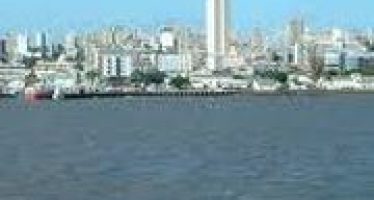Noam Chomsky: Unravelling Established Truths
 It is hard, if not downright impossible, to gain the upper hand in a debate with a logician who is a walking, and talking, encyclopaedia to boot. Noam Chomsky, a self-styled anarcho-syndicalist and a linguist of great distinction, is not easily swayed and will vigorously defend whatever outlandish position he has adopted.
It is hard, if not downright impossible, to gain the upper hand in a debate with a logician who is a walking, and talking, encyclopaedia to boot. Noam Chomsky, a self-styled anarcho-syndicalist and a linguist of great distinction, is not easily swayed and will vigorously defend whatever outlandish position he has adopted.
To his many critics, Mr Chomsky is but an extremist of the militant left spouting crackpot ideas inapplicable to, and at odds with, contemporary life. However, most of Chomsky’s opponents fail to see the depth and breadth of his reasoning. They also often lack the openness of mind required to see the sound reasoning behind Mr Chomsky’s ideas.
According to his biographer Robert F Barsky, “he was clearly struck by the obvious contradictions between his own readings and mainstream press reports. The measurement of the distance between these realities, and the evaluation of why such a gap exists, remain a passion for Chomsky.”
An unremitting defence of the right to both free speech and free press lies at the centre of Mr Chomsky’s political philosophy. Without it, all debate ceases and any exchange of opinion becomes a dialogue of the deaf. Highly critical of the press in his own country, the United States, Mr Chomsky habitually decries the reshaping of fact to fit the commercial or political mould du jour.
In a by now infamous critique of the media, he compared the coverage awarded the genocidal Pol Pot regime in Cambodia, a US enemy state, to the press reports on the occupation by Indonesia, a US ally, of East Timor. Mr Chomsky found that atrocities committed by Indonesian forces received but scant coverage while those perpetrated by Pol Pot and his henchmen in Cambodia were splashed all over the news drawing wide condemnation.
Though stating the obvious – and reaching conclusions not devoid of logic – Mr Chomsky received much criticism and was even called an apologist for the regime that instituted the Killing Fields. In reality, he merely concluded that international news coverage is largely inspired and driven by systemic biases and propaganda.
Though a polemicist by nature, Mr Chomsky has gained wide acclaim as a linguist and became, for a time in the 1980s and 1990s, the most-cited living scholar in the field of Arts and Humanities. In 1956, he helped create the Chomsky Hierarchy which describes the basic structure of formal languages and, as such, still helps computer scientists build linguistic bridges between machine code – processed by chips and processors but incomprehensible to humans – and programming language that can be easily written and read by software developers.
Mr Chomsky has authored over a hundred books – including some exceptionally heavy tomes – on both linguistics and politics. One of his latest works – On Western Terrorism: From Hiroshima to Drone Warfare, published in 2013 – proves that Noam Chomsky continues to be the dissident intellectual of old, questioning the West’s role in the world and inviting readers to question established truths and thus undermine prevailing notions of morality.
You may have an interest in also reading…
The Evolution of Elite: A History of Hedge Funds
From Alfred Winslow Jones’s 1949 experiment to today’s trillion-dollar hedge fund industry, the story of hedge funds is one of
Mozambique Gets US$110 Million from World Bank to Improve Business Environment, Public Financial Management, and Social Protection
WASHINGTON — The World Bank Board of Executive Directors approved today US$110 million to support the Government of Mozambique’s State Budget
Klaus Schwab: What Kind of Capitalism Do We Want?
What kind of capitalism do we want? That may be the defining question of our era. If we want to

















































































